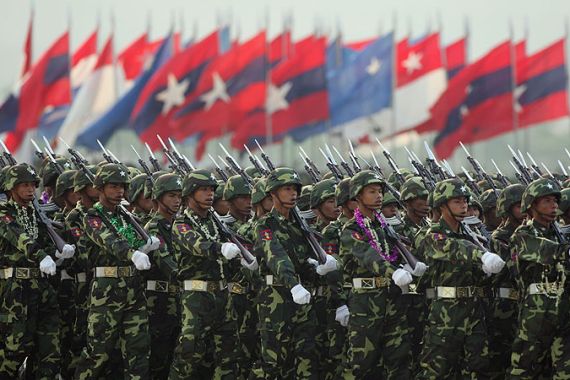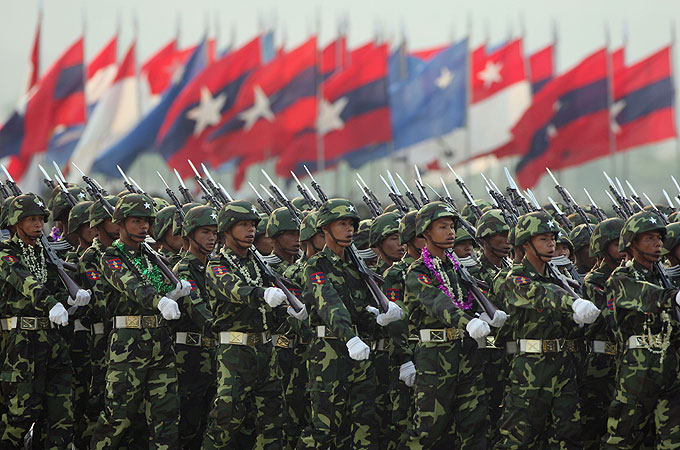Timeline: Myanmar
Key developments in the country’s history as it heads for the first general election in 20 years.

 |
| The military, which has ruled Myanmar since 1962, has fixed November 7 for the first general election in 20 years [EPA] |
1987: Devaluation of currency wipes out people’s savings; sparks anti-government protests.
1988: Military crackdown on pro-democracy protests; an estimated 3,000 people killed.
1989: Martial law declared; opposition leader Aung San Suu Kyi sentenced to house arrest for allegedly endangering the state.
1990: Main opposition National League for Democracy (NLD) party wins landslide in national election; military refuses to recognise result.
1991: Suu Kyi awarded Nobel Peace Prize.
1995: Suu Kyi freed after six years but movements restricted.
1997: Myanmar admitted to the Association of Southeast Asian Nations (Asean).
2000: Suu Kyi sentenced to house arrest for defying travel restrictions.
2002: Suu Kyi released following UN-facilitated secret talks with government.
2003: Government unveils “road map” to democracy; Suu Kyi returned to house arrest after her convoy is attacked in north of country.
2006: Nation’s capital moved from Yangon to remote town of Naypidaw.
2007 August: Sudden massive hike in fuel prices triggers biggest show of public dissent since 1988. After weeks of protests military launches violent crackdown against demonstrators, sparking world outrage.
2008 April: Following ethnic insurgency, ruling generals unveil draft constitution which proposes a quarter of parliamentary seats for military and bans Suu Kyi from holding office.
2008 May: Cyclone Nargis devastates Asia’s rice-bowl in the Irrawaddy delta, with more than 130,000 estimated deaths.
Referendum proceeds amid major humanitarian crisis. Military government says over 90 per cent voted in favour of proposed constitution.
2008 November: Political activists receive jail terms of up to 65 years in series of secretive trials.
2009 April: NLD offers to participate in planned elections if military rulers free political prisoners, change the constitution and permit international observers.
2009 August: Suu Kyi convicted of violating conditions of her house arrest after an uninvited visit by an American man in May. The initial three-year jail term is commuted to 18 months.
2009 October: Suu Kyi begins talks with ruling generals; allowed to meet visiting western diplomats.
2010 March: New election laws announced, with provisions for an electoral commission chosen by military government.
NLD votes to boycott elections; splinter group National Democratic Front gains legal status with intention to compete in polls.
2010 May: NLD self-disqualifies as political party after refusing to register for polls, and officially dissolves.
2010 August: General elections fixed for November 7 – its first election in 20 years; senior military officials resign to contest in polls.
2010 October: Military generals bar foreign observers and international media from entering country for polls.
Government reveals changes to flag, national anthem and official name.